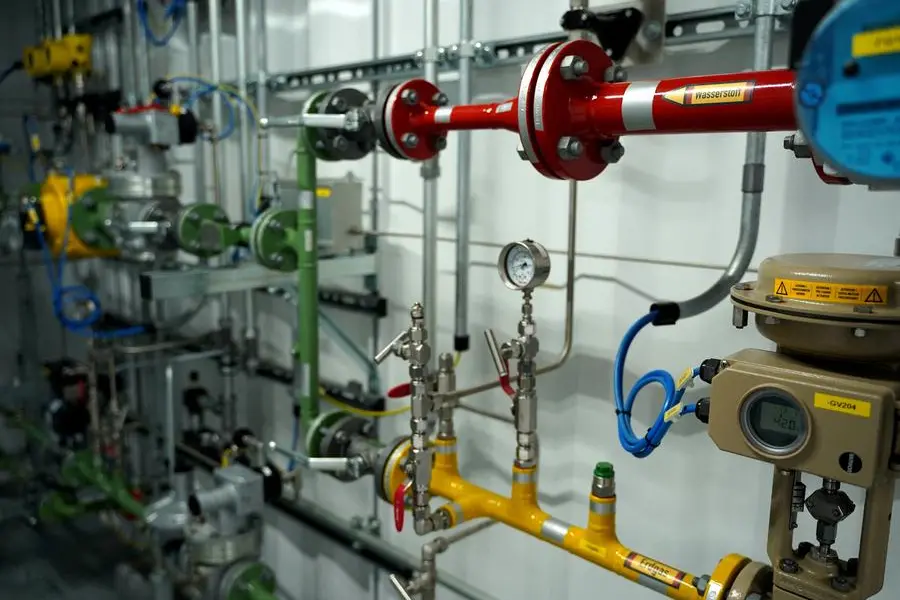PHOTO
European Union countries have nearly filled their gas storage as the bloc readies for winter and the potential stoppage of Russian gas deliveries via Ukraine, data showed on Wednesday.
Gas storage facilities across the 27-country EU are 90% full, marking the second year running in which the bloc has hit its 90% filling target in August - well in advance of a November deadline, the European Commission said.
Germany, which has the biggest storage caverns of any EU country, has filled them to 93% of capacity. Most EU members with storage sites have filled them to above 90%, data from Gas Infrastructure Europe showed.
Russia used to supply around 40% of the EU's gas before the 2022 Ukraine war, after which Russian deliveries plunged and Europe raced to replace reliance on Moscow with more gas from countries including Norway and the U.S.
Europe faces a potential further loss of Russian gas this winter, as a transit agreement to deliver Russian gas to Europe via Ukraine is due to expire at the end of the year.
The EU has said it will not pressure Ukraine to extend this agreement, and has said countries can do without these deliveries, which totalled around 15 billion cubic metres (bcm) in 2023, out of total EU gas consumption of 295 bcm.
Europe's last winter was usually mild and had low energy demand, which left storage relatively full earlier this year, reducing the task of refilling depleted caverns during summer. Stored gas is called on during Europe's coldest months when demand for heating peaks.
"It's a combination of a very significantly higher starting point of storage and lower demand," Jacob Mandel, senior associate at Aurora Energy Research, said of current storage levels.
The GIE data showed a very different situation in Ukraine, where gas storage is just 23% full.
Mandel said the risks caused by the war and the high cost for Ukrainian companies to import gas have curbed the country's ability to build up storage reserves.
Ukrainian energy facilities have also come under nearly daily bombardment in recent months, causing blackouts, as the war grinds on following Russia's full-scale invasion in February 2022.
EU Energy Commissioner Kadri Simson called on Wednesday for Europe to provide the necessary support to Ukraine's energy system to help the country prepare for a "tough" winter.
(Reporting by Kate Abnett; Editing by Jan Harvey)





















